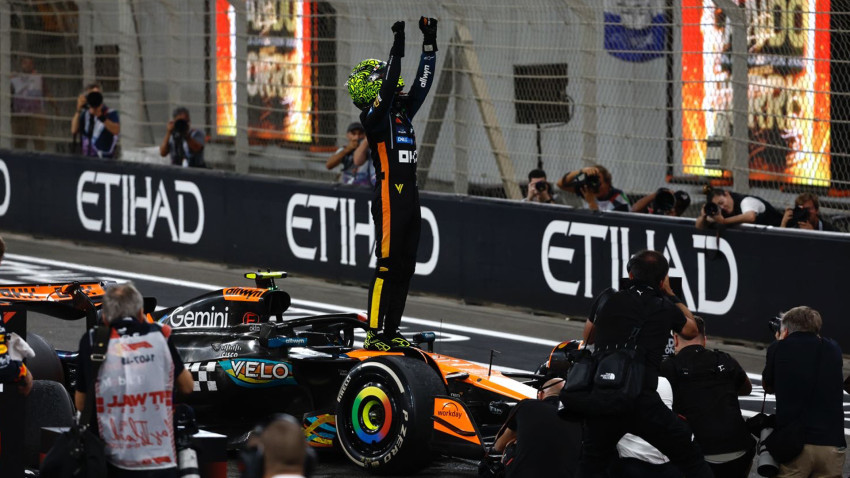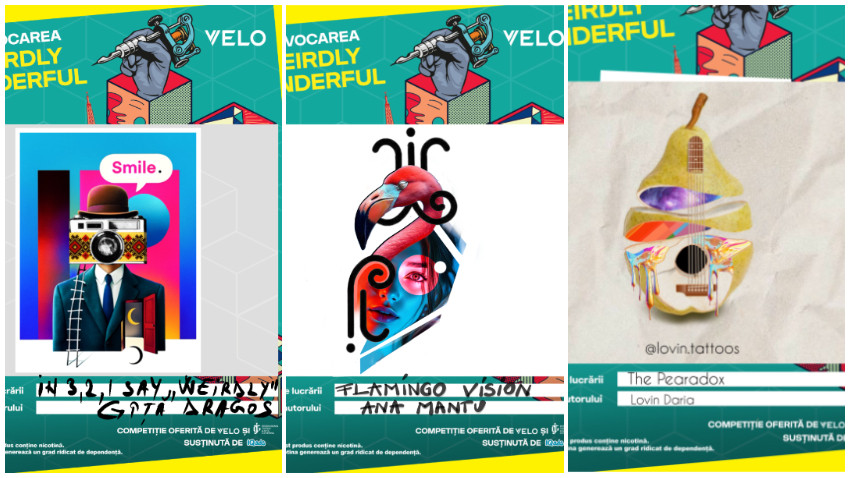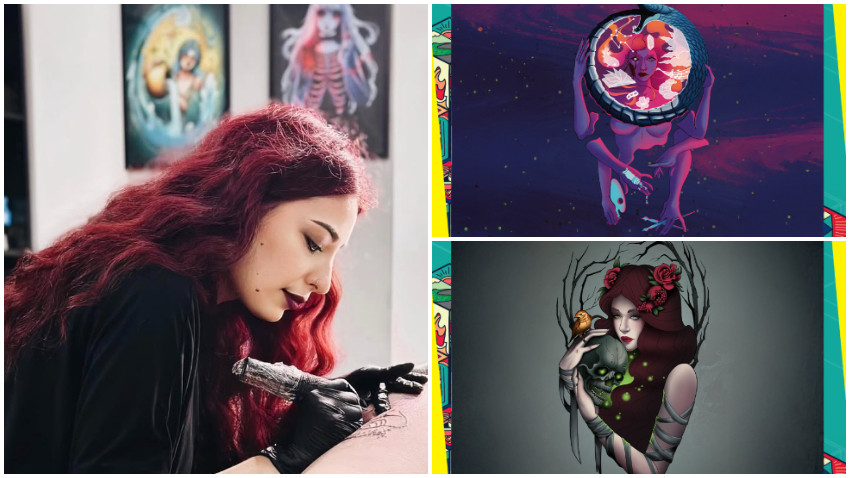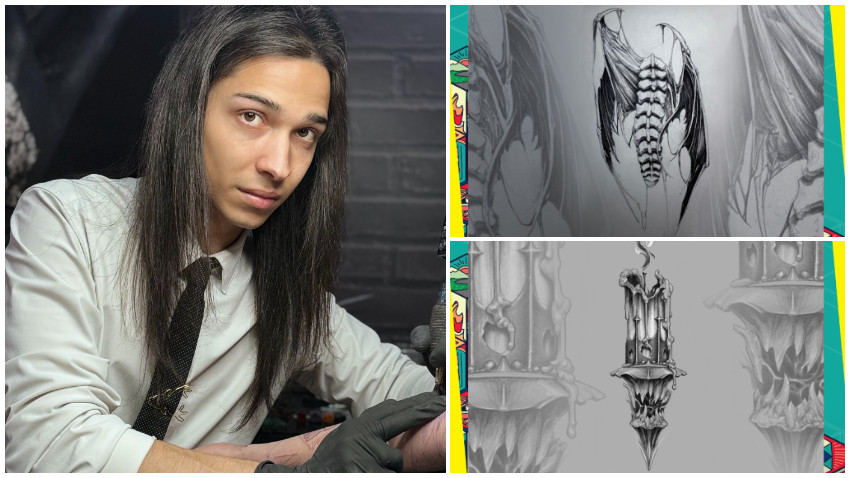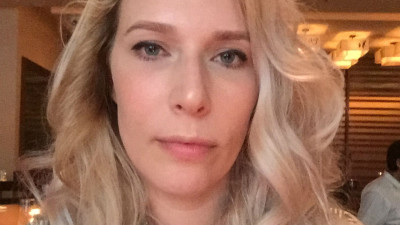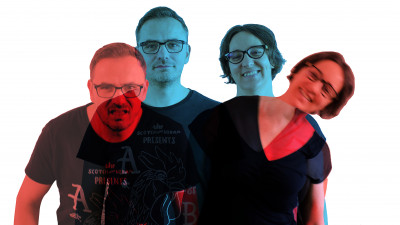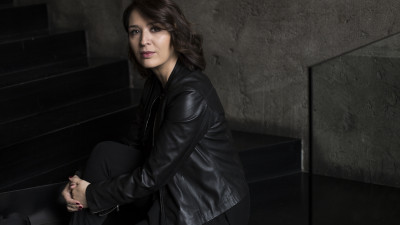Even if it's not an art per se, advertising should work on a deeper level, thinks Tsanka Krusheva, ECD McCann Sofia. Not just to provoke, to attract attention or to be extravagant for the sake of it, but to influence people. Advertising has a great social responsability, it creats trends that can help society evolve. In Bulgaria, you can see this evolution in the change of the commercials: messages started losing their patriarchal tone, the sexist or sexual references became more subtextual, the humour is a lot less coarse.
Tsanka worked in radio and TV and for the last 13 years, she is a mixer of storytelling and math in advertising. She started in a local agency and now she is creative director in an international one. Below we talk about the stages that brought her in the place she finds herself today, how the industry changed, what's become of the local flavour in the globalisation era, technology and the people advertising is trying to mirror.
Versiunea in romana a interviului se gaseste chiar aici.
Your start in advertising
My favourite subject at school was math. Then I gave up on it and only years later realized how much that break-up had affected me. I studied Literature in University and my love for storytelling lived on with me working in radio and then TV. When I started working in advertising, expecting the storytelling to continue, much to my surprise, my first love - math - was what I found there.
At first, advertising looked like an equation: there are certain parameters you simply can not change - brand positioning, target audience, budget - and one variable: the idea you need to invent in order to find the solution. This meeting point of strategy and creativity manages to keep me enchanted for 13 years now.
First stage: copywriting in a local agency. Second stage: again a local agency, but this time as a creative director. Third stage: creative director at an international network. But let’s say there are two main stages: a local agency and an international one. However, they differ tremendously.
First agency interviews
They asked me what I like the most and I answered briefly - to break the rules. This is all I remember.
Significant changes in advertising
Advertising definitely has evolved, because that’s what has happened to society itself. Messages started losing their patriarchal tone and all sexist or sexual references, if any, became far more subtextual. The humour is a lot less coarse and we observe a step up from the mundane.
In the beginning, it was important to come up with a good TVC, a good print and a good radio spot. These were the three main pillars of most briefs and, if executed correctly, you got an integrated and full-blooded campaign. The target audience was either people from small towns or the big city, either men or women, with this or that income, of this or that age - just a simplified, schematic type of segmentation.
But then new categories appeared and it became more difficult to put an idea in a designated box. The audience is now being divided more precisely, psychology stepped in, right next to sociology, and they became inseparable. Equations became more challenging and working in an advertising agency even more exciting.
The local flavour
Advertising mirrors the people, because it’s made for them. Within their core needs and desires, people in Bulgaria are the same as other people all over the world: they want to feel alive, loved and unafraid, to find meaning in their lives. However, things look quite different on the surface and that’s where you can feel the so-called local flavour. But I believe it’s not essential to a campaign’s emotional impact.
Local vs. Global
I appreciate the global nature of advertising. Concentrating on local characteristics and prerequisites just for the sake of it seems unnecessary to me. We’ve been doing this for too long, and we’ve found and exploited all it has to give. Of course, there’s a difference between a campaign with a local insight and one with a local flavour. Unfortunately, in Bulgaria the latter still predominates.
If globalization is an issue, then this international take-over of advertising is an issue as well. But is globalization an issue? It has already happened. And if so, there is a reason for it. We can’t turn it back or pretend we don’t see it. A way more interesting question is what happens next.
And, to me, it’s not whether local culture will remain a museum artefact, but if the new globalized society will continue to produce different cultures or it will eventually be completely dehumanized.
The advertising business in Bulgaria
It’s quite a challenging business. Also a very dynamic one. If you are on time, then you are late. A matter of politics, as everywhere else. You need to be flexible, alert and resourceful in order to stay on top of the game.
The good part is that the product of this business carries a great deal of social responsibility: it’s able to create trends which can help society evolve. As for the bad part: it occurs when the good part is not played right or isn’t happening at all.
Finding truly strong local insights is still a gap to be filled. Far more often local features are being exploited on a really basic level: as far as language or lifestyle is concerned. References to our historical past, folklore and patriotism still stay strong. And there are so many more undiscovered local attributes in the mindset and behaviour of the contemporary, urban person of Bulgaria, which may serve as great local insights.
Factors that influence the advertising
The biggest challenge comes from the market’s scale. As it is a small one, target audiences are being generalized, because everyone wants their message to reach a maximum number of people. That’s how the target becomes a not so homogenous group of people, all of which should be addressed by one and the same concept. That’s what leads to mediocrity of communication.
I won’t point out tight budgets as an obstacle, because we are already trained to work with them, but lots of good ideas are dying every day just because they are not compatible with the financial frame.
How does technology influence the creative product
Technology is not that involved in Bulgarian ad campaigns, as development takes time and that is usually a problem in terms of planning, and, more importantly, because of its cost, usually way beyond the budget.
The positive side of technical orientation is that it affects a campaign directly: people spend more and more time in digital spaces and it makes them way easier to be found.
The negative is that attention span has dropped to a scary level, which unifies ads to the status of provocation, making them mediocre as a result.
Important trends
A visible trend is street-talk making its way in advertising, as well as the quest for things being “real”, simple, not pretentious or sophisticatedly metaphorical.
However, that’s walking on thin ice, often leading to falling into the trap of being corny. Someone’s “own voice” is somebody else’s mediocrity or even vulgarity. Advertising should be able to work on a level deeper than provocation, to provoke emotion - laughter, sadness, anger - and even if not an art in itself, it should influence people with the art’s means of influence. Not simply attract attention or be a sensation.
Another trend, entirely positive, is creating experimental work in one-to-one communication and that’s the reason why this category is the busiest at the Bulgarian advertising festival. Regardless of the need of a serious budget and the long implementation period, a few really interesting projects have already been done.
I believe Bulgarian advertising will continue to evolve following the same steps bigger markets are following in terms of creative traditions. The drive to create work so innovative, provocative and change-stimulating that all media sources will be interested in covering it: that’s the cornerstone of Bulgarian advertising at the moment.
If a stranger saw the Bulgarian commercials...
They would have the impression that Bulgaria is a European country, sharing European values and lifestyle, ar the same time possessing a different past and cultural accumulations, which add a specific local hint to every creative product. Maybe just a step before reality, but that’s fine.


![[Adland neighbours] Tsanka Krusheva (McCann Sofia): People in Bulgaria are the same as others all over the world. They want to feel alive](https://media.iqads.ro/2018/10/tsanka-cover-850.jpg?v=201810120906)

